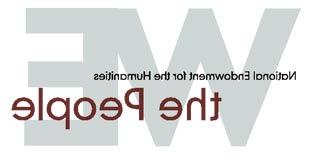Washington Takes Command of the Continental Army
Introduction
In the days after the Battle of Bunker Hill, there is a stalemate between British and colonial forces while both sides regroup. The British regulars now stationed at Bunker Hill have a view of the colonial fortifications across the river, where 20,000 men assemble under Artemas Ward's command. Morale among some British soldiers is low after the battle, and shortages are beginning to make life difficult. Colonial supporters try to take advantage of the situation, distributing flyers in the British camps that berate the soldiers for shedding "The Blood of Your Fellow Subjects" and encouraging a shift in allegiance.
In Philadelphia, many delegates are concerned by the role New England has played in the conflict so far, believing the New Englanders to be rabble-rousers and trouble-makers. If there is to be an Army of the United Colonies, it must be agreed upon and supported by all the colonies, not only those in the North. Artemas Ward has commanded the assembled troops in Cambridge for several months, but finally Congress picks a Virginian to increase the sense of colonial unity as "Chief of all the Forces Rais'd." That Virginian is George Washington.
When Washington arrives in Cambridge, he finds a motley and disorganized collection of men and armaments. Many of the New England troops are suspicious of him as an outsider, but he soon lets them know that "The General most earnestly requires" order and obedience.
Washington sets up his headquarters at a fine mansion on Brattle Street, abandoned by its Tory family, the Vassalls, who have fled to safer areas like most of the Loyalists in Cambridge. Once established there, he begins to receive many visitors, from local residents to Native American representatives from tribes in Canada and New York, to delegations from Congress. One such delegation, including Benjamin Franklin, meets with Washington to address the issues facing the new Army, including the question of How to Feed 20,372 Men and also how to keep them, since many have signed on only as short-term enlistments and are now eager to go home.
Dismayed by the British situation in Boston, General Howe is also desperate for men. Many Loyalists who have abandoned their homes in Cambridge and the surrounding towns are now crowding into Boston seeking the protection of the British Army. Hoping for the "Preservation of Order and Good Government," Howe appeals to the residents of Boston as winter approaches.
Though Washington calls for his wife and family to join him in Cambridge and appears to settle down for a winter of waiting, he has other plans. Caring more for talent than birth or education, Washington has hand-picked his officers, and selects Henry Knox to venture to upstate New York and the captured Fort Ticonderoga. Knox is to bring the artillery pieces from the fort to reinforce the colonial siege lines, despite "Snow too Deep for the Cannon" and other setbacks.
Jeduthan Baldwin is one of those chosen to prepare the colonial fortifications for Knox's cannon, and he diligently records the effort put in to digging ditches and building artillery emplacements, often under enemy fire. Washington wishes "Shot and Shells Thrown ... Into Boston" from spots surrounding the city, and Baldwin and Knox are the men he trusts to put them there.
The summit of Washington's plan is to fortify Dorchester Heights, where there is a clear shot straight into the city and over the harbor area. Knox's successful progress culminates in placing the cannon in fortifications thrown up overnight on the fourth of March 1776. This provokes both British Army and Loyalists into "Preparing for their Departure" after continuous military presence in the city for seven and a half years. Celebrations ring out through Massachusetts as the triumphant Bostonians exclaim "Great Howe is a Miserable Wretch."
Washington's plans have produced his first victory since taking command of the Continental Army, and now he and the army head for New York. While in Cambridge he, like many colonists, read Thomas Paine's Common Sense. Independence is now the question on everybody's lips.
List of supporting documents:
Rowe's Revolution
"Genl Washington & his Retinue were in Town yesterday, I did not hear of it otherwise should have paid my Respects & waited on him."
Diary of John Rowe,
19 March 1776


![Broadsheet, Prospect Hill. Bunkers Hill, [Boston: John Howe, 1775?]](/database/images/prospectbunkers_1_th2.jpg)







![Broadside, Two favorite Songs made on the Evacuation of the Town of Boston by the British Troops [Boston, 1776]](/database/images/twofavsongs_th.jpg)

